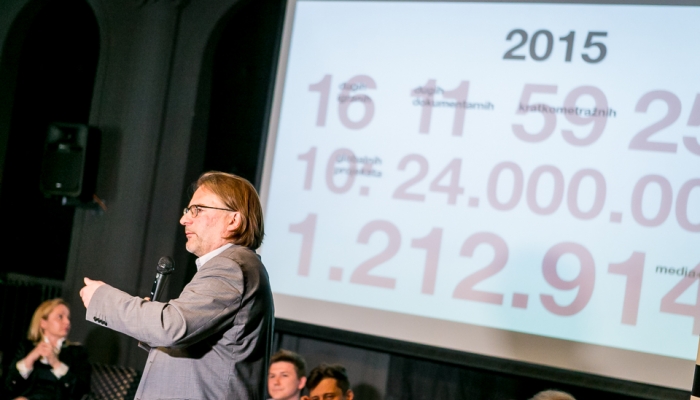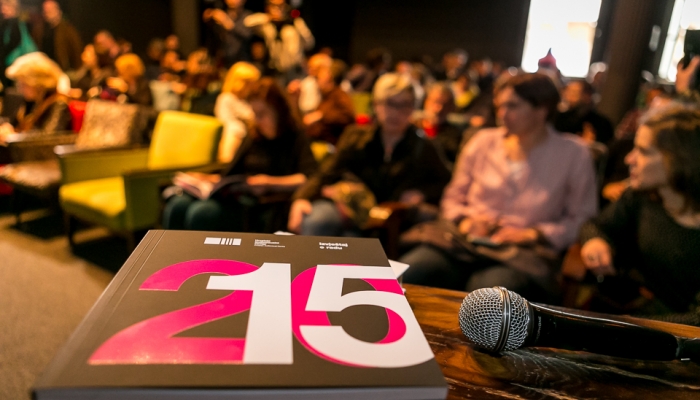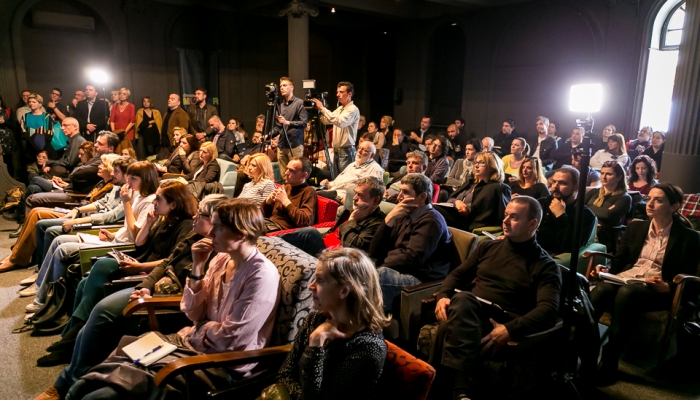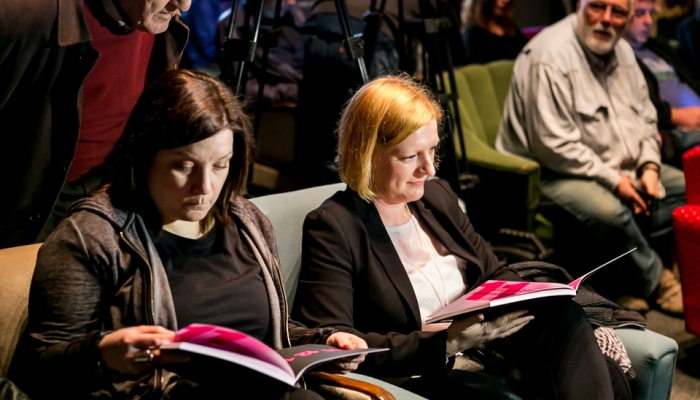The Croatian Audiovisual Centre presents 2015 performance report




On Thursday, in the Müller Hall of Zagreb’s Europa Cinema, the Croatian Audiovisual Centre’s (HAVC’s) 2015 Performance Report was presented to journalists and film professionals, detailing the Centre’s activities over the past year. Along with the Centre’s director Hrvoje Hribar, also speaking about the year’s activities were members of HAVC’s Board of Directors Nina Obuljen Koržinek and Romana Matanovac Vučković, film director and member of the Centre’s Council Zrinko Ogresta, film director and screenwriter Nevio Marasović, film director Hana Jušić, producer Diego Zanco, and Mario Kozina from HAVC’s Promotion and Distribution department.
In 2015, sixteen feature films (seven minority and nine majority productions), 11 feature documentaries and 59 short films of all genres were completed and screened; Croatian films had more than 250 appearances at major festivals; local projects were granted a total of 1,212,914 EUR from Europe’s MEDIA Sub-programme and Eurimages Fund, while ten international projects filmed on location in Croatia, through the incentives programme, generated 160,800,000 HRK income. Throughout 2015, within limited or wider local distribution, 19 full-length films were released and generated 143,378 viewers. With the goal of increasing viewership and strengthening independent cinema operator networks, in 2015 the HAVC started to decentralize local film premieres, and initiated the Film Literacy Project, with a long-term goal of expanding viewership and creating a wider cultural context within which audiovisual works will be valued equally alongside other arts and find a place within schooling and education.
Hrvoje Hribar, the Centre’s director, relying on Ivo Škrabalo’s History of Croatian Film, compared the film industry’s current period with those that have passed. He assessed that continuity, which was often lacking in this environment, was key to success. ‘Thanks to a stable financial base and a clear strategy outlined in 2010 and 2011, we’ve been having a reasonably stable period these last few years,’ said Hribar, noting that the coming year will be marked with appearances at Cannes, Venice, the ‘European Oscars’ and a job well done.
Nina Obuljen Koržinek noted that the level of transparency in the HAVC is higher than in any other cultural domain. ‘There is always that cloud of potential conflict of interest lingering, and we’ve spent hours and days and weeks and months trying, in the best possible way, to define it. The system needs to report their results publically, it needs to make them available to everyone, which is what we are doing, and I think it’s the best way to avert any suspicions of non-transparent spending,’ said Obluljen Koržinek.
Romana Matanovac Vučković explained HAVC’s legal structure, noting that ‘the Centre’s activities are very standard.’ ‘The director, from a legal perspective, can’t do anything alone, he needs previous approval from the Audiovisual Council,’ reminded Matanovac Vučković.
‘Through 25 years of Croatian cinematography, I have systematically worked through all governments, no matter what my own views are, and I think that is precisely why I have the moral right and unbiased perspective to be able to say that I am a staunch fan and supporter of this kind of cinematographic foundation, precisely because I see one order. We are a respectful and civilized cinematography and its results are apparent everywhere, we are not only recognized by our neighbors, but by Europe and the world, and as an author I can say I am proud to be a part of such cinematography,’ said film director Zrinko Ogresta.
Producer Diego Zanco commended the incentives programme, which, in its four years, has secured the development of an entire industry of serviced productions. ‘The incentives are not just money, but also an order – of a system and rules where the whole process is carefully monitored. The only thing lacking in order to complete this unbelievable project are studios,’ Zanco noted.
Young film directors Hana Jušič and Nevio Marasović shared their experiences of the support they received from the HAVC through the different phases of filmmaking. ‘I don’t believe in systems, but the HAVC’s seems to be the best possible one,’ Jušić said.
Comprehensive data on the activities of all the Croatian Audiovisual Centre’s departments, as well as a list of all projects approved for financing through public applications, the exact data on viewership, Croatian films participating at major festivals, as well as a series of other useful information can also be found in the PDF Report in the Publications section on the Centre’s website.
Photos from the Report presentation can be downloaded at this link; please credit the Croatian Audiovisual Centre as the photo source.
